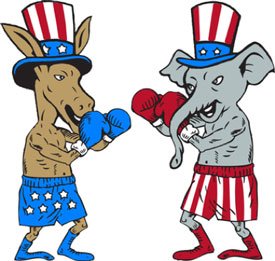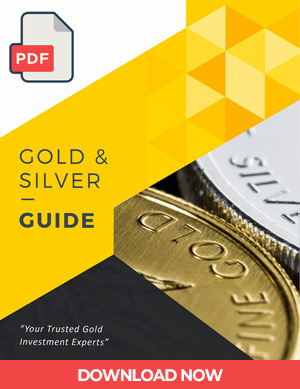Tuesday night’s presidential debate between Donald Trump and Joe Biden won’t go down as a great moment in the annals of American democracy.
 Bullion.Directory precious metals analysis 01 October, 2020
Bullion.Directory precious metals analysis 01 October, 2020
By Stefan Gleason
President of Money Metals Exchange
That much both camps, as well as independent observers of the chaotic spectacle, can agree.
The post-debate debate over whose interruptions or insults were most egregious totally overlooked the glaring failure of moderator Chris Wallace to ask any substantive questions about the country’s unprecedented financial predicament.
Record budget deficits? Unsustainable debt growth? Open-ended Federal Reserve currency creation?
None of these topics that bear down starkly on America’s financial future were even brought up!
Whoever occupies the Oval Office for the next four years will have to make critical decisions that could determine whether the country suffers a currency crisis or other great reckoning.
Chris Wallace chose instead to badger the President of the United States about how much personal income tax he recently paid, raise a fuss about his rollback of “racial sensitivity training,” and scold like a schoolmarm whenever Trump initiated spontaneous exchanges with his opponent.
The establishmentarian journalist’s sympathies toward Biden were on full display.
Beyond that, his obliviousness to the elephant in the room – the growing fiscal and monetary crisis both candidates have had a hand in creating – did voters a major disservice.
Here’s the question the debate moderator should have asked:
What’s the end game for skyrocketing federal budget deficits and a national debt that now represents well over 100% of GDP – especially given that entitlement outlays and other “mandatory” spending programs are projected to surge in the years ahead?
Back in the 1990s, it was still common to ask presidential candidates what they would do to balance the budget and reduce the national debt. Debt became one of the major issues of the day after it was brought to prominence by the charts and graphs of independent candidate Ross Perot.
As of 2020, the federal government is set to run up a previously unthinkable deficit of over $3 trillion to push the national debt to $27 trillion. And nobody seems to care.
Obviously, no politician who hopes to win election will oppose emergency coronavirus stimulus measures in the name of fiscal responsibility. But the American people deserve to be told the truth by elected officials about how exactly they intend to pay for all the “free” money they are handing out.
 Had the candidates been pressed on this issue, Biden might have spouted something about increasing federal revenues by making the rich pay even more in taxes. Trump might have talked about growing the economy and hitting China with tariffs.
Had the candidates been pressed on this issue, Biden might have spouted something about increasing federal revenues by making the rich pay even more in taxes. Trump might have talked about growing the economy and hitting China with tariffs.
But a sharp debate moderator who grasped the nature of what the Federal Reserve is now doing – and who understood the link between debt growth and the country’s stray from sound money principles – would cut to the chase.
We’re never going to grow our way out of the debt. And we’re never going to tax our way out of it, either. It’s all going to be papered over by the Federal Reserve. Isn’t that the end game?
Of course it is. In effect, there is now a bipartisan consensus is support of the debt monetization.
The once obscure central banking mandate euphemistically called Modern Monetary Theory (MMT) has now quietly become mainstream. It essentially tasks the Fed with printing whatever dollars the government needs, rendering debt burdens irrelevant while marking down the value of the currency.
Do you support MMT, Mr. President? What about you former Vice President Biden?
They would each be hard pressed to deny it at this point.
In the wake of the COVID lockdowns, the Treasury Department and the U.S. Congress essentially told the Fed to do whatever it takes to avert debt defaults, even if means buying literal junk bonds and adding them to its balance sheet. That’s exactly what the central bank did.
The Fed’s so-called “dual mandate” of stable prices and full employment is now an in infinite mandate. Central bankers have assumed the role of funding the government, bailing out financial markets, stimulating the economy, propping up asset prices, and lifting consumer prices.
Ever since President Richard Nixon de-linked the U.S. dollar from gold in 1971, government spending and debt has accelerated to the upside.
In the process, the value of the dollar has been steadily debased. What cost $1.00 in 1971 costs $6.37 in 2020, based on the government’s own Consumer Price Index.
It’s all reflected in gold prices, which recently surged to a record high of over $2,000/oz – 100 times higher compared to gold’s dollar price a century ago. Measured by gold, that’s a 99% decline in the currency’s purchasing power!
Whether Fed Chairman Jerome Powell wants to admit it or not, the ultimate arbiter of his actions won’t be the next President who decides whether to reappoint him, the members of Congress to whom he gives testimony, or the voters who elect them in November.
The ultimate arbiter of monetary policy will be the precious metals markets.
A loss of confidence in the currency will be reflected in a further rise in gold and silver prices. Neither Trump nor Biden will be able to override the veto of sound money.
This article was originally published here Bullion.Directory or anyone involved with Bullion.Directory will not accept any liability for loss or damage as a result of reliance on the information including data, quotes, charts and buy/sell signals contained within this website. Please be fully informed regarding the risks and costs associated with trading in precious metals. Bullion.Directory advises you to always consult with a qualified and registered specialist advisor before investing in precious metals.











 Material provided on the Bullion.Directory website is strictly for informational purposes only. The content is developed from sources believed to be providing accurate information. No information on this website is intended as investment, tax or legal advice and must not be relied upon as such. Please consult legal or tax professionals for specific information regarding your individual situation. Precious metals carry risk and investors requiring advice should always consult a properly qualified advisor. Bullion.Directory, it's staff or affiliates do not accept any liability for loss, damages, or loss of profit resulting from readers investment decisions.
Material provided on the Bullion.Directory website is strictly for informational purposes only. The content is developed from sources believed to be providing accurate information. No information on this website is intended as investment, tax or legal advice and must not be relied upon as such. Please consult legal or tax professionals for specific information regarding your individual situation. Precious metals carry risk and investors requiring advice should always consult a properly qualified advisor. Bullion.Directory, it's staff or affiliates do not accept any liability for loss, damages, or loss of profit resulting from readers investment decisions.

Leave a Reply